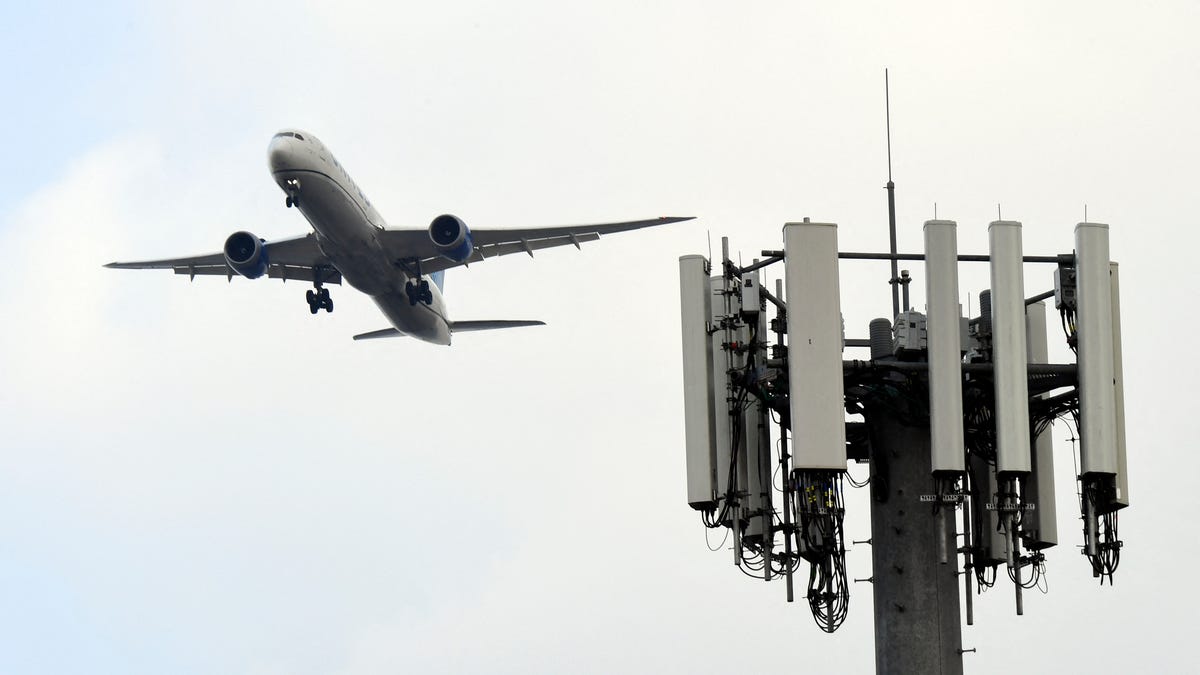Aviation Advocates Ask FCC to Permanently Limit 5G Around Airports
Under a temporary agreement, Verizon and AT&T aren't broadcasting C-band 5G around US airports. Aviation groups want to make some restrictions permanent.

A number of aviation industry groups are petitioning the US Federal Communications Commission to permanently restrict some 5G signals around airports.
Currently, Verizon and AT&T aren't broadcasting C-band 5G in areas around US airports until July 2023 as part of an agreement with the FCC. The temporary agreement is meant to give airlines time to make sure 5G signals won't interfere with aircraft equipment -- specifically a part called a radar altimeter -- during landings in rough weather. But aviation advocacy groups, including the Aerospace Industries Association and Airlines for America, met with the FCC to discuss making some restrictions permanent, as Light Reading reported earlier.
The restrictions, outlined in a formal petition, would shift some responsibility back to telecoms by, for instance, preventing 5G antennas from pointing 90 degrees above the horizon. They'd also make permanent the current ban on some C-band signal emissions (specifically in the 4,200MHz to 4,400MHz frequency range).
The proposed solutions "would appear to not compromise wireless operators' actual use cases while further assuring aviation safety and providing a workable RF environment against which future radio altimeters can be designed and built," the petition reads.
When reached for comment, Verizon didn't address the 5G proposals in the petition.
"We continue to have positive discussions with the [Federal Aviation Administration] and FCC, and progress is being made. We're encouraged to see the airlines making progress with these issues as well," read a statement Verizon sent to CNET.
AT&T didn't immediately respond to a request for comment. The FCC declined to comment.
Read more: The Aviation Industry's Ongoing Beef With 5G: Everything You Need to Know
It's unclear how seriously the FCC may take these suggestions, or whether they'll influence the current agreements between the FAA and telecoms around C-band 5G. The FCC took a back seat to arguments between the FAA and telecoms that lasted through the end of 2021 and early 2022 about whether carriers could safely launch C-band 5G service without interfering with aircraft landings.
A truce was brokered in January that let AT&T and Verizon activate service in the C-band range to improve 5G coverage for subscribers, so long as they restricted C-band around certain airports. These blackout zones were designed to give airlines time to inspect their fleets of aircraft until July 2022, a deadline that was extended to July 2023. AT&T and Verizon combined spent nearly $70 billion to acquire C-band spectrum licenses during an FCC auction that took plain December 2020 and January 2021.
Carriers are refining their airport tech, too. AT&T said around June that it had "developed a more tailored approach to controlling signal strength around runways that allows us to activate more towers and increase signal strength."

